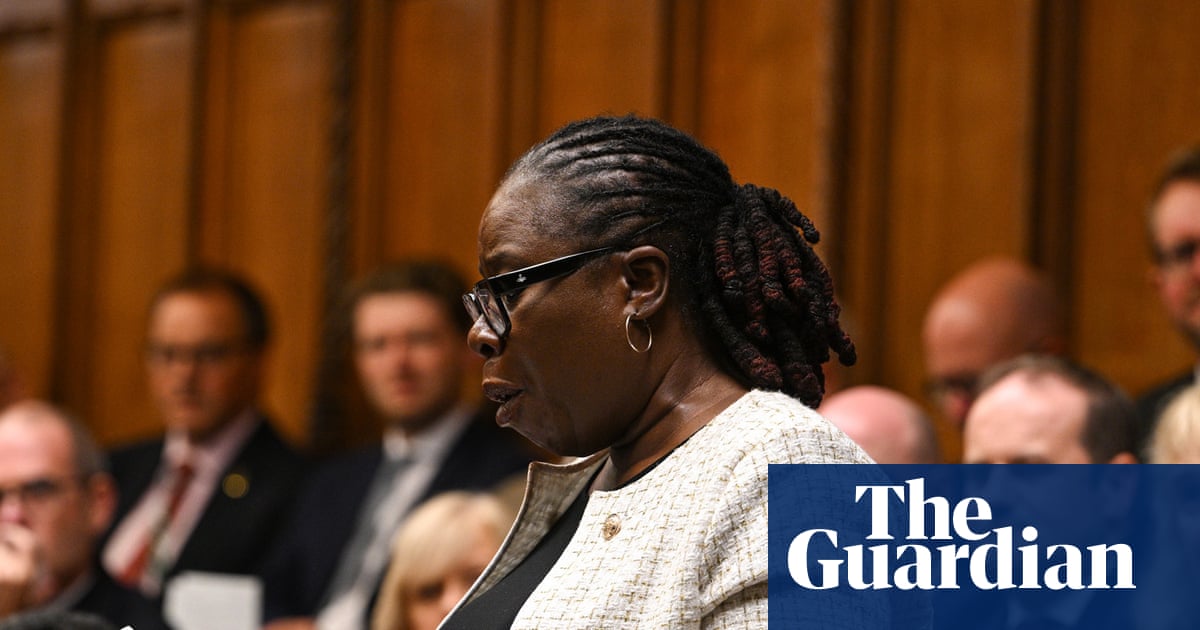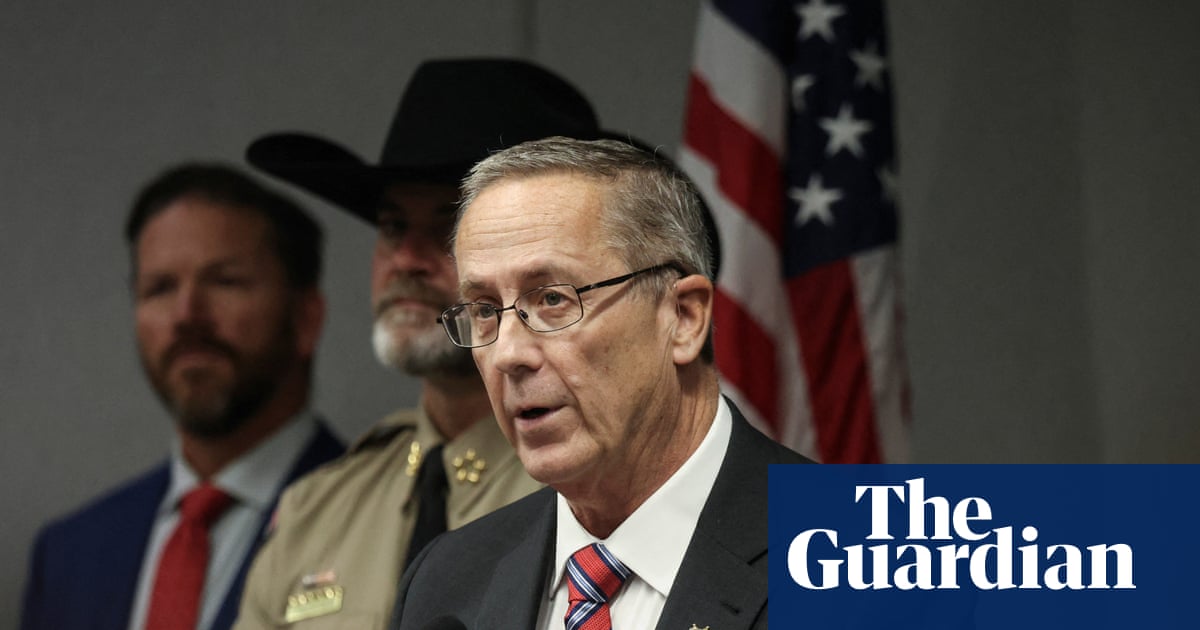Rachel Reeves has pledged to “renew Britain” with billions to be invested in energy, housing, transport and infrastructure – though some key departments will face tough real-terms spending cuts.
The chancellor said the effects of that investment would be felt in all corners of the country, decrying austerity as a “destructive choice”.
Announcing the government’s spending review, the chancellor made a high-stakes promise to cut spending on controversial issues such as asylum hotels by the end of the parliament, which she said would save £1bn.
But the Home Office will receive a budget cut which will extend beyond the asylum savings, causing alarm from police officers and the London mayor Sadiq Khan. Others that will see spending cuts include Defra and local government, as well as the Foreign Office which will see an almost 7% cut because of the loss of much of the foreign aid budget.
“We are renewing Britain,” Reeves said. “I know that too many people in too many parts of our country are yet to feel it. This government’s task, my task as chancellor, and the purpose of this spending review is to change that, to ensure that renewal is felt in people’s everyday lives, in their jobs and on their high streets.
“The priorities of this spending review are the priorities of working people, to invest in Britain’s security, in Britain’s health, and to grow Britain’s economy so that working people are better off.”
Reeves said total departmental budgets would grow by 2.3% a year in real terms, drawing a comparison with the 2.9% cut in the austerity years under the Conservative-Liberal Democrat coalition – a retort to her critics who have accused her of a return to austerity.
“Austerity was a destructive choice for the fabric of our society, and it was a destructive choice for our economy too, choking off investment and demand,” Reeves said. “Creating a lost decade for growth, wages and living standards that is their legacy. My choices are different. My choices are Labour choices.”
She said there would be “tough decisions for stability”, a nod to the unpopularity of the now partly reversed winter fuel allowance and welfare cuts, as well as tax rises including the increase in the national insurance rate paid by employers.
In a highly political speech introducing the government’s framework for the next three years, Reeves attacked the Tories and Reform for opposing her plans, saying the investment would never have been possible under them.
“The spending plans that I am setting out today are only possible because of the decisions that I took in the autumn to raise taxes and the changes to our fiscal rules,” she said, referring to the £113bn freed up for capital spending.
“Every one of those changes was opposed by the parties opposite. So today, they can make an honest choice, and they can oppose these spending plans as they oppose every penny I raise to fund them, or they can make the same choice as Liz Truss, spend more, borrow more, with no regard for the consequences.”
The Conservative shadow chancellor said the spending rise was “not worth the paper that it is written on” and would mean months of speculation over how it would be paid for. “This is the spend now, tax later review, because [she] knows she will need to come back here in the autumn with yet more taxes, and a cruel summer of speculation awaits.”
The health service was the biggest winner in terms of day-to-day spending, increasing in real terms by 3% a year – though lower than some years under the Conservatives. It will mean the health service gets £29bn extra a year.
Defence is among those with the biggest spending boost – as expected – with spending rising to 2.6% of GDP by April 2027, though that includes the intelligence agencies. It will mean £11bn for defence and £600m extra for security services.
Another key winner was Angela Rayner’s housing department, where Reeves said “social housing [had been] neglected for too many decades, but not by this Labour government”. Overnight, she had announced £39bn over the next decade. Blackpool, Preston, Sheffield and Swindon are among the towns that have already put forward bids for the cash.
The department most unhappy with its settlement is the Home Office, especially the policing budget, which chiefs have warned will mean the government will miss its manifesto commitments on recruitment and tackling crime.
Reeves said the department would get an average 2.3% increase a year in real terms over the spending review period, an increase of £2bn, but the funding is far below what police services believe will be adequate.
The chancellor also vowed there would be significant savings on asylum, with an ambitious pledge to end spending on hotels for asylum seekers by the end of the parliament, without saying how.
Reeves said there would be new funding for the department to hear cases and appeals more quickly and deport those whose claims were rejected, saying the end of the use of hotels would save taxpayers £1bn.
Education will get a cash uplift of £4.5bn in the core schools budget, as well as £2.3bn in investment to fix school classrooms, especially those with crumbling concrete. From the capital budget, there will be £2.4bn a year to continue the rebuilding of 500 schools.
Several departments have secured better-than-expected investments, including those of the environment secretary, Steve Reed, and the energy secretary, Ed Miliband. Defra will get a major funding boost for flood defences, investing £4.2bn over three years, though overall spending will be cut by 2.7%,
The Department for Energy Security and Net Zero has the biggest increase in capital spending at five times the average departmental growth rate. The spending review will fund manifesto commitments for £13.2bn on home insulation and the full £8.3bn for Great British Energy, which many reports had speculated would be cut.
Other major funding programmes include an already announced £14.2bn for a new nuclear power station, Sizewell C, and £2.5bn investment to develop small modular reactors. There is an additional £9.4bn for carbon capture, including Acorn in Scotland.
Major transport projects were also given additional funding, including the east-west rail link between Oxford and Cambridge, which will receive an extra £2.5bn and a further £3.5bn investment in the Transpennine route upgrade as well as the Midlands Rail Hub, the region’s biggest rail improvement scheme. There will be £445m for railways in Wales over 10 years.
Reeves said she understood that the decline of high streets was a key driver of dissatisfaction in Britain, saying there too many regeneration projects had been “held back, gathering dust in bureaucratic limbo”. There would be a new growth mission fund to expedite local projects, she announced.
The additional funding will support up to 350 communities to improve parks, youth facilities, swimming pools and libraries and to tackle graffiti and fly tipping.
Reeves also used the spending review to announce government investment in R&D and entrepreneurs, confirming R&D spending would reach £22bn a year by the end of the spending review. She will increase the investment power of the British Business Bank to £25.6bn, which she said would be directed towards helping British business scale up.

.png) 3 months ago
39
3 months ago
39

















































